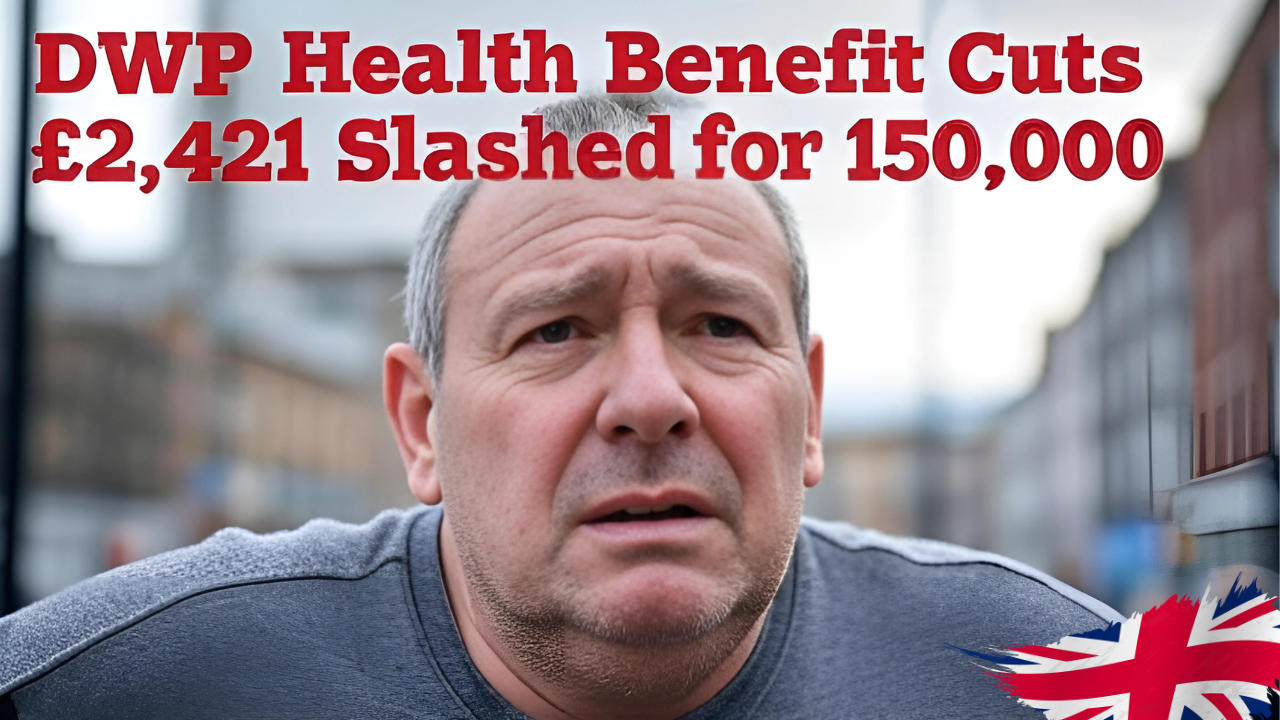The British government has announced sweeping changes to health-related benefits that will affect millions of people across the UK. These reforms represent the biggest shake-up to the welfare system in decades, targeting both disability payments and support for those unable to work due to illness.
The Department for Work and Pensions (DWP) revealed plans that could save the government over £5 billion annually by 2029-30. However, these savings come at a significant cost to some of the most vulnerable people in society.
Understanding the Scale of Changes
More than three million families will face reduced income under these new proposals. The government estimates that families could lose an average of £1,720 per year by the end of the decade.
These changes aren’t happening overnight. The government plans to introduce them gradually between now and 2030, giving people time to adjust to the new system.
Personal Independence Payment (PIP) Gets Stricter Rules
New Four-Point Minimum Requirement
The biggest change affects PIP, which helps disabled people with extra costs of daily living. Currently, people can qualify for PIP by scoring eight points across different daily living activities.
Under the new rules, claimants must score at least four points in one single activity to qualify. This seemingly small change will have massive consequences for hundreds of thousands of people.
Who Loses Out on PIP?
Around 800,000 people who currently receive PIP will lose their daily living component by 2029-30. Many of these individuals will still keep their mobility payments, but they’ll lose the crucial support for everyday tasks.
The government expects 370,000 people to lose PIP entirely. Another 430,000 people who would have qualified under current rules won’t receive the benefit at all.
Universal Credit Health Element Faces Deep Cuts
Existing Claimants See Frozen Payments
People already receiving the Universal Credit health element won’t see their payments increase with inflation. This effectively means their support gets weaker each year as living costs rise.
Currently, the health element provides £97 per week for those unable to work due to illness. This rate will stay frozen until 2030, representing a real-terms cut of hundreds of pounds annually.
New Claimants Hit Hardest
Starting in 2026, new claimants will receive just £50 per week instead of the current £97. This represents a devastating 50% cut to this crucial support.
The government will also freeze this reduced rate until 2030. By then, new claimants could be receiving less than half what current recipients get in real terms.
Impact on Carers and Families
Carers Lose Support Too
When someone loses PIP, their unpaid carers often lose support as well. The government estimates that 150,000 carers will lose carer’s allowance or the carer element of Universal Credit.
This creates a double hit for families. Not only does the disabled person lose money, but their carer also faces reduced income.
Children in Affected Households
Around 900,000 children live in households where someone receives health-related benefits. These families already face high levels of hardship, with many struggling to heat their homes or buy adequate food.
The cuts will push many of these families deeper into poverty. Research shows that nearly a quarter of adults in families receiving health-related benefits have used food banks in the past year.
Government’s Justification for Changes
Rising Costs Driving Reform
The number of people claiming health and disability benefits has grown dramatically since 2019. Working-age PIP claims have more than doubled, from 15,300 to 35,100 new claims each month.
Total spending on these benefits increased from £36 billion to £48 billion between 2019 and 2024. Without reform, costs were projected to reach £70 billion annually by the end of this parliamentary term.
Focus on Getting People Working
The government argues these changes will encourage more disabled people into work. They’re investing £1 billion annually in additional employment support by 2029-30.
Ministers point out that moving from benefits to 20 hours of work at minimum wage increases someone’s income by nearly £200 per week. They believe this creates better incentives for those who can work.
Who Benefits from the Changes?
Increased Standard Allowance
Not all the changes are cuts. The government plans to increase the basic Universal Credit rate above inflation. Single people over 25 will get around £5 extra per week by 2029-30.
This increase aims to make the basic benefit more adequate. However, for most people affected by health benefit cuts, this small increase won’t come close to compensating for their losses.
Right to Try Work
Disabled people will get a new “right to try” work without immediately losing benefits. This addresses current fears about losing support if job attempts don’t work out.
The government also promises better employment support and fewer reassessments for people with the most severe conditions.
Real-World Impact on Families
Case Study Examples
Consider Sarah, a single woman over 25 living alone with mobility issues. Under current rules, she might receive PIP daily living payments plus Universal Credit health element.
Under the new system, if she doesn’t score four points in one category, she loses PIP entirely. She also loses the health element, facing a monthly income reduction of nearly £800 – a 57% cut.
Families with Children Affected
Take a family where the parent has a health condition affecting their daily living. Currently, they might receive various benefits totaling over £1,800 monthly.
Under new rules, this same family could see their income drop by more than £1,000 per month – a reduction of 54%. That’s over £12,000 less per year to cover essential needs.
Timeline for Implementation
When Changes Take Effect
Most changes won’t happen immediately. The government plans a gradual rollout:
- 2026-27: New Universal Credit health element rate of £50 per week begins
- 2027-28: Age restriction for health element potentially raised to 22
- 2029-30: All changes fully implemented, with maximum savings achieved
Consultation Period
The government promises consultation with disabled people before finalizing these plans. However, many campaigners worry that the basic framework is already decided.
Spring 2025 was mentioned as the timeframe for detailed consultation documents. This gives limited time for meaningful input before implementation begins.
Opposition and Support
Charity Concerns
Major disability charities have condemned these proposals. Scope described the changes as “catastrophic for disabled people’s living standards.”
The Centre for Mental Health warns that cutting support could worsen mental health conditions. NHS leaders share similar concerns about health impacts.
Economic Arguments
Supporters argue that the current system is unsustainable. They point to rapidly rising caseloads and costs as evidence that reform is necessary.
The government emphasizes that spending on these benefits will still increase, just more slowly than previously projected.
What This Means for You
If You Currently Receive Benefits
Existing PIP recipients should prepare for potential reassessment under stricter rules. Not everyone will lose benefits, but many will face reduced support.
Universal Credit health element recipients will see their payments frozen in real terms. Budget carefully for rising living costs without corresponding benefit increases.
If You’re Considering Claiming
New claimants after 2026 will face much tougher conditions. The health element will be half the current rate, and PIP eligibility will be more restrictive.
Consider seeking advice from welfare rights organizations about your options and timing for any claims.
Potential for Change
These proposals remain subject to consultation and parliamentary approval. Public pressure and practical concerns might influence final implementation.
However, the government seems committed to achieving significant savings from this area of spending.
Preparing for Impact
Whether you support or oppose these changes, they’re likely to happen in some form. Families affected should start planning for reduced income and explore all available support options.
Local councils, charities, and advice services may see increased demand as these changes take effect.
FAQs
When do the PIP changes start?
The new four-point minimum rule will be introduced gradually, with full implementation by 2029-30.
Will existing PIP recipients automatically lose benefits?
Not automatically, but they may lose support when reassessed under the new stricter criteria.
How much will the Universal Credit health element be cut?
New claimants from 2026-27 will receive £50 per week instead of the current £97 per week.
Can people still claim if they disagree with assessments?
Yes, the appeals process will continue, though the criteria for qualifying will be much stricter.
What support is available for people who lose benefits?
The government promises increased employment support and higher basic Universal Credit rates, though these won’t fully compensate most people.
Will carers lose support too?
Yes, approximately 150,000 carers will lose carer’s allowance or Universal Credit carer element when the people they care for lose PIP.
How much will the government save?
The government expects to save over £5 billion annually by 2029-30 through these changes.
Are there any increases to benefits?
Yes, the basic Universal Credit standard allowance will increase above inflation, providing around £5 extra weekly for single people over 25.

